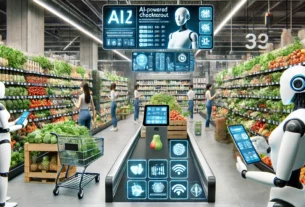The Impact of Climate Change on Foodservice Supply Chains
Climate change is a pressing issue that is affecting various industries around the world. The foodservice industry, in particular, is facing significant challenges due to the impact of climate change on supply chains. In this report, we will explore the specific ways in which climate change is affecting foodservice supply chains, including the financial implications, market share shifts, volume changes, and future plans of industry players.
Financial Implications
The financial implications of climate change on foodservice supply chains are substantial. As extreme weather events become more frequent and unpredictable, food producers and distributors are facing increased costs related to transportation, storage, and sourcing of ingredients. This has led to higher prices for consumers and decreased profit margins for businesses.
For example, a study conducted by the Food and Agriculture Organization (FAO) found that the global food industry could face losses of up to $1 trillion by 2050 if climate change is not addressed. This has prompted many foodservice companies to invest in sustainable practices and technologies to mitigate the financial impact of climate change on their supply chains.
Market Share Shifts
Climate change is also causing market share shifts within the foodservice industry. As consumers become more conscious of the environmental impact of their food choices, they are increasingly demanding sustainably sourced and ethically produced products. This has led to a rise in popularity of plant-based and organic food options, as well as a shift towards locally sourced ingredients.
For example, a survey conducted by Nielsen found that 73% of consumers are willing to pay more for sustainable products. This has prompted many foodservice companies to adjust their offerings to meet consumer demand and maintain their market share in an increasingly competitive industry.
Volume Changes
The volume of food being transported and distributed within foodservice supply chains is also being impacted by climate change. As extreme weather events disrupt transportation routes and damage crops, food producers and distributors are experiencing fluctuations in supply and demand.
For example, a report by the World Food Programme (WFP) found that the volume of food aid needed in response to climate-related disasters has increased by 50% in the past decade. This has put added pressure on foodservice companies to adapt their supply chains to ensure a consistent flow of products to consumers.
Future Plans
In response to the challenges posed by climate change, many foodservice companies are developing long-term plans to mitigate their environmental impact and build more resilient supply chains. This includes investing in renewable energy sources, implementing waste reduction strategies, and partnering with sustainable suppliers.
For example, McDonald’s recently announced a goal to reduce its greenhouse gas emissions by 36% by 2030 and achieve net-zero emissions by 2050. This ambitious plan reflects a growing trend within the foodservice industry towards sustainability and environmental responsibility.
In conclusion, the impact of climate change on foodservice supply chains is significant and far-reaching. From financial implications to market share shifts, volume changes, and future plans, industry players are facing a complex set of challenges that require innovative solutions. By prioritizing sustainability and resilience, foodservice companies can adapt to the changing climate and ensure a secure future for their businesses and the planet.
[read_more] Visit: CulinaryCoverage.com
[/read_more]



